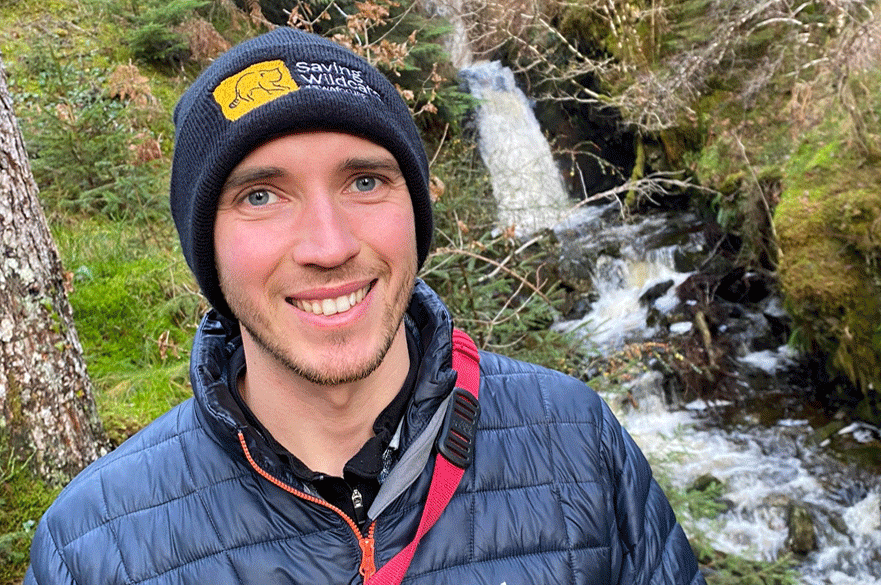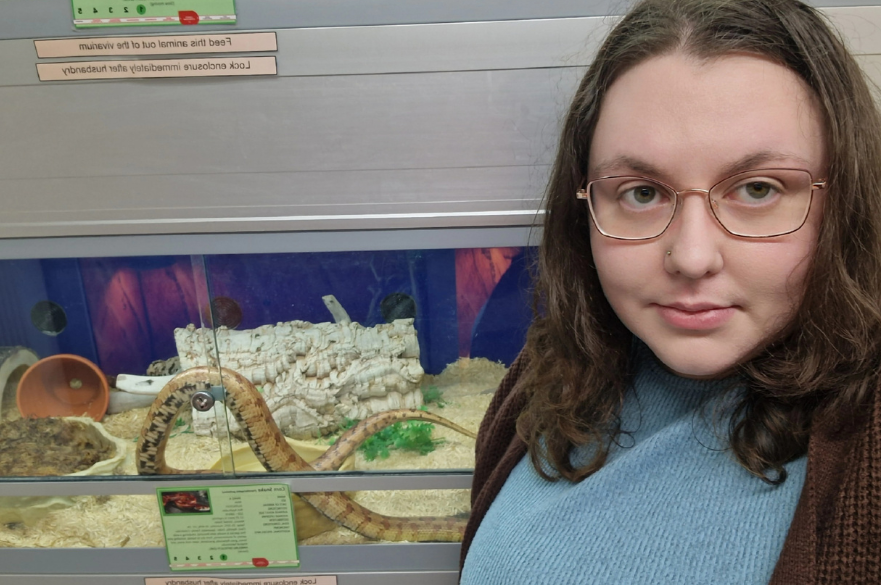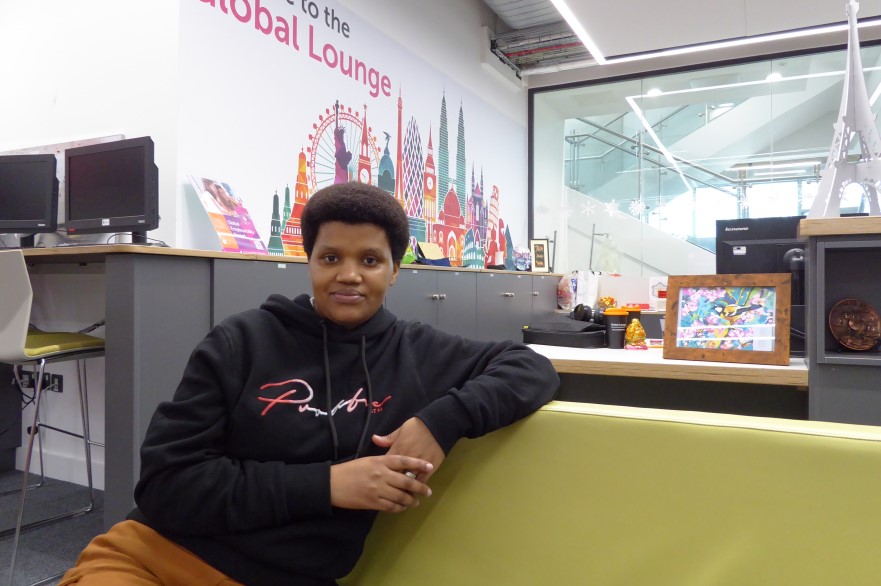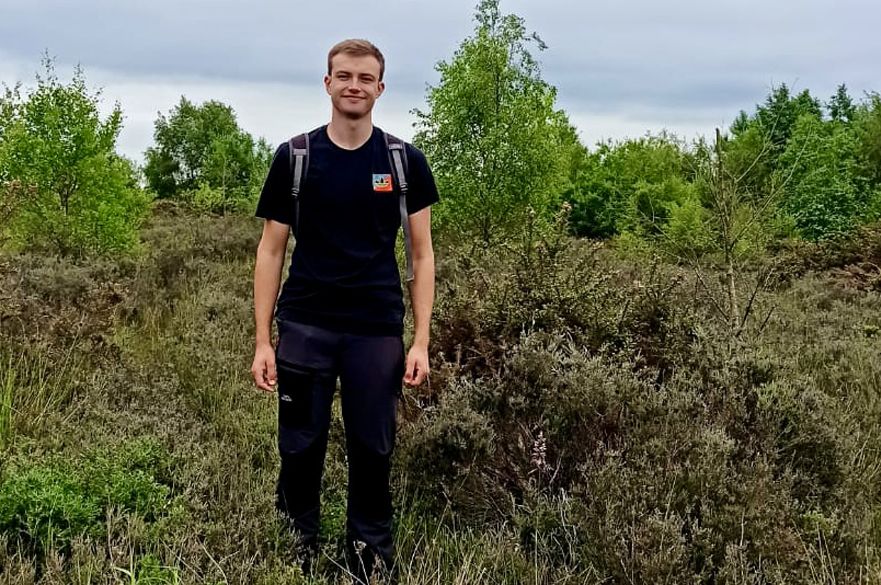
I decided to study at NTU Brackenhurst because it provided me with the opportunity to study in a rural setting, but also to experience city life/culture.
More about Alex
During his time at NTU, Alex completed a BSc in Wildlife and Conservation, as well as a Masters in Endangered Species Recovery and Conservation. Relocating to the Scottish Highlands in 2020 allowed Alex to eventually secure his current role as Project Officer for the Saving Wildcats Project.
Why did you choose to study at NTU?
I decided to study at NTU Brackenhurst because it provided me with the opportunity to study in a rural setting (one that I was familiar with from growing up in North Wales) but also to experience city life/culture. NTU also ranked well in the University rankings and the course modules aligned well with the career path that I wanted to take.
What did you learn – both inside and outside of lectures?
One of the most valuable skills that I learnt was how to write scientific reports and the value of peer-reviewed journals to broaden my knowledge and to supplement the information that we’d received during lectures. Outside of lectures, I learned how to become independent away from normal family life. This was my first experience of living away from ‘home’ and so I had to learn about paying my own utilities bills, council tax and budgeting for food shopping and socialising.
What still makes you smile when you look back?
I made life-long friends during my time at Brackenhurst as well as my long-term partner. We all spent long-hours writing assignments in the library, playing football and socialising at the Brack bar and it is these experiences that make me smile when I look back at my time at Brack.
What does your current day involve?
A typical working day for me, especially during the winter, often involves driving down in the morning to the Highland Wildlife Park where the project’s offices are based and preparing for a full day out in the field. During the winter we are monitoring our Core Project Area with camera traps which need routinely checking to ensure that they are operating correctly, the SD cards aren’t full, and the batteries haven’t ran out. Back in the office, the images are analysed and ‘tagged’ with additional metadata to allow for further analysis in the future.
What attracted you to this field of work?
I have always enjoyed spending time outdoors. I believe that spending time out in nature is not only good for our physical health, but also our mental wellbeing. Not only did this job provide me with the opportunity to work alongside a critically endangered native predator, but also the opportunity to spend a significant part of my working week out hiking through the Cairngorms National Park where any day I could see something incredible, like capercaillie, pine marten or white-tailed eagle.
What challenges have you faced?
When my partner and I decided to leave our very stable lives and careers in the Midlands and move to the Scottish Highlands, we were never under the impression that it would be easy and that my dream job would be handed to me, but we also couldn’t have predicted a global pandemic and a nationwide lockdown being enforced within the third month of us moving to Inverness. It was outside of the ecology season when no consultancies were hiring and so I got a temporary job working in an outdoor clothing shop. I was confident that, in time and with my experience and qualifications, a job in ecology/conservation would not be far away. Fast forward seven months later and the threat of another lockdown was a constant fear. I was struggling not only financially but also mentally. I was very fortunate to have my partner and dog with me to support me through the most challenging part of my life. Then, a local ecologist very kindly offered to meet with me for a socially distanced coffee to discuss what my previous experience was and what kind of work I was looking for. I had no idea that this casual, hour-long coffee was the very first step in my career in wildcat conservation.
What have been the highlights and biggest challenges of your career so far?
The biggest highlight of my career so far was the moment that I found out I’d be working full time for the Saving Wildcats project for the next five years. I was a subcontractor for the project monitoring camera traps in Abernethy Forest when I got the phone call offering me a full-time position. I took a moment to sit down underneath a scots pine tree and acknowledge what I’d achieved and the challenges I was facing only a few months ago. Although if you were to ask me this question this time next year, then I think the answer would easily be seeing that first wildcat leaving its pen and out into the wild.
The challenges that we encounter as project officers in the Highlands are often not too dissimilar to the ones that local member of the public face. In the winter we must prepare for several feet of snow and temperatures as low as minus 17 degrees Celsius and in the summer the constant threat of ticks and clouds of midges can make any day out in the field a challenge.
What are your plans for the future?
I am incredibly fortunate to only be in the second year of a five-year native species conservation project. This is a level of stability and job-security that I am incredibly grateful for and is a situation that is not often afforded to graduates within the conservation sector. I tend to not think too far into the future and just enjoy every day as it comes.
If you had a time machine, what would you go back and tell yourself at uni?
Focus more on native species conservation, network more and never stop trying to improve in R!
Follow Alex on LinkedIn: linkedin.com/in/alex-scurrah-price-26158311b
Still need help?
-

STUDENT PROFILE
Alice Weaver
Endangered Species Recovery and ConservationUnited Kingdom
https://www.ntu.ac.uk/study-and-courses/courses/our-students-stories/animal-rural-environmental-sciences/alice-weaver
-

STUDENT PROFILE
Anne Nyiransabimana
Biodiversity ConservationRwanda
https://www.ntu.ac.uk/study-and-courses/courses/our-students-stories/animal-rural-environmental-sciences/anne-nyiransabimana
-

STUDENT PROFILE
Joshua Morgan
Endangered Species Recovery and ConservationUnited Kingdom
https://www.ntu.ac.uk/study-and-courses/courses/our-students-stories/animal-rural-environmental-sciences/joshua-morgan